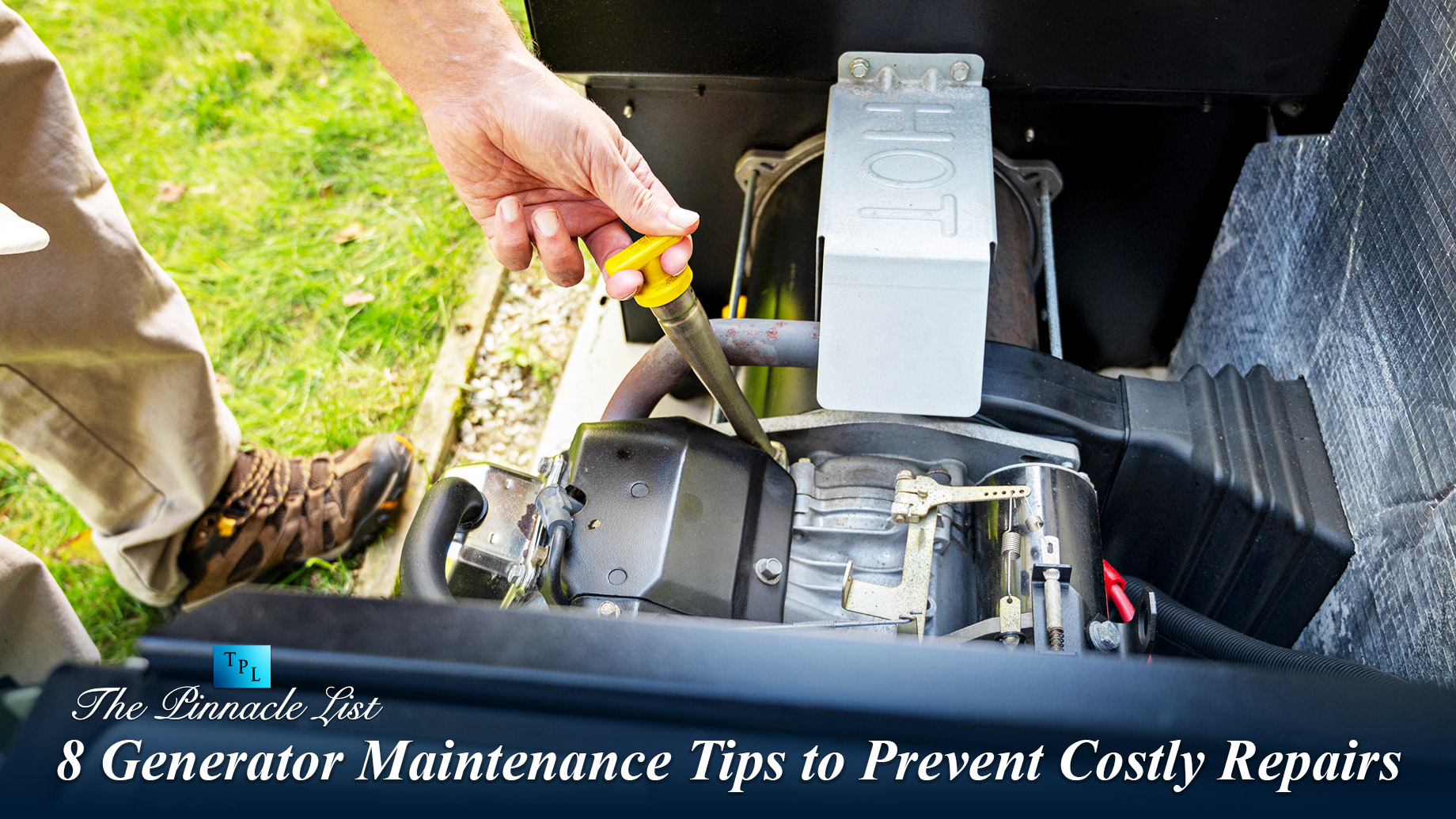
Maintaining home appliances in Gulfport, MS, is essential due to the area’s unique climate conditions. The humidity, salty air, and occasional severe weather can accelerate wear and tear on your equipment, making regular maintenance even more critical. One of the most crucial appliances to maintain is your generator, especially given the frequent power outages in the region. Proper maintenance not only extends the life of your generator but also ensures it works efficiently when you need it most. Here are some key tips to keep your generator in top condition and prevent costly repairs.
1. Regularly Check and Change the Oil
Oil is the lifeblood of your generator, ensuring that all moving parts operate smoothly. Regularly checking and changing the oil is vital for preventing engine wear and tear. Check the oil level before and after each use. Most manufacturers recommend changing the oil every 100 hours of operation or at least once a year, whichever comes first. To change the oil, turn off the generator, drain the old oil, replace the oil filter, and refill it with fresh oil as per the manufacturer’s specifications.
2. Inspect and Clean the Air Filter
The air filter has a critical role in keeping debris and dirt out of the engine. A clogged air filter can reduce efficiency and cause the engine to overheat. Regular inspection and cleaning are necessary to maintain optimal performance. Check the air filter every few months and clean it if it’s dirty. Replace it if it shows signs of excessive wear. This is especially important in Gulfport, MS, where dust and debris can quickly accumulate. If you notice persistent issues, seek out generator repair in Gulfport, MS, to ensure professional handling.
3. Examine the Spark Plugs
Spark plugs are essential for the ignition process in your generator. Over time, they can become dirty or worn out, affecting the generator’s performance. Regularly inspecting and replacing the spark plugs can prevent this. Check the spark plugs every six months and clean them if they are dirty. Replace them annually or if you notice any signs of wear and tear, such as cracks or heavy deposits. Clean spark plugs ensure efficient fuel combustion and reliable operation.
4. Test the Battery Regularly
The battery is critical for starting your generator. A weak or dead battery can leave you without power during an outage. Regular testing and maintenance are essential to keep it in good condition. Test the battery every month to ensure it holds a charge. Clean the battery terminals and check for any signs of corrosion. If the battery is not holding a charge well, consider replacing it every 2-3 years, depending on usage and manufacturer recommendations.
5. Run the Generator Periodically
Running your generator periodically, even when you don’t need it, is essential to keep the internal components lubricated and ensure that it starts reliably. Aim to run the generator for about 30 minutes every month. This practice helps identify any potential issues early and keeps the generator in good working condition. When running the generator, ensure it operates under load, meaning it should power some appliances to simulate actual usage conditions. This process helps burn off any moisture that may have accumulated in the system and keeps the battery charged.
6. Keep the Generator Clean
Dirt, dust, and debris can accumulate on your generator, causing it to overheat and potentially damage internal components. Regularly cleaning your generator is vital for maintaining its efficiency and longevity. Start by wiping down the exterior with a soft cloth and mild detergent to remove any dirt and grime. Pay special attention to the vents, as these can become clogged with debris, restricting airflow and causing the generator to overheat. Use a soft brush to clean around the vents and other hard-to-reach areas. Avoid using high-pressure water, which can damage the generator’s electrical components.
7. Inspect the Fuel System
A clean and functional fuel system is crucial for the efficient operation of your generator. Over time, fuel can become contaminated with dirt and water, leading to clogged fuel lines and filters. Regular inspection and maintenance of the fuel system can prevent these issues. Start by checking the fuel lines for leaks, cracks, or blockages. Replace any worn or damaged fuel lines immediately. Inspect the fuel filter and replace it if it appears dirty or clogged. It’s also a good idea to drain the fuel tank and clean it annually to remove any sediment or water that may have accumulated. For gasoline generators, consider adding a fuel stabilizer to prevent the fuel from degrading, especially if the generator is not used frequently.
8. Schedule Professional Maintenance
Regular DIY maintenance is essential, but professional servicing is equally important. A skilled technician can identify and address any potential issues, perform more complex maintenance tasks, and make sure that your generator is in optimal condition. Schedule a professional inspection and service at least once a year. During this service, the technician will thoroughly check all components, including the engine, fuel system, electrical connections, and battery. They will also perform a load test to ensure the generator operates efficiently under real-world conditions. Professional maintenance can catch problems early, preventing costly repairs and extending the life of your generator.
Conclusion
Maintaining your generator is crucial, especially in areas where the climate can pose additional challenges. Regular maintenance not only extends the life of your generator but also ensures it works efficiently when you need it most. From checking and changing the oil to scheduling professional maintenance, each step plays a vital role in keeping your generator in top condition.
By following these eight maintenance tips, you can avoid costly repairs and ensure that your generator remains reliable and efficient. Regularly checking and changing the oil, inspecting and cleaning the air filter, examining the spark plugs, testing the battery, running the generator periodically, keeping it clean, inspecting the fuel system, and scheduling professional maintenance are all essential practices.